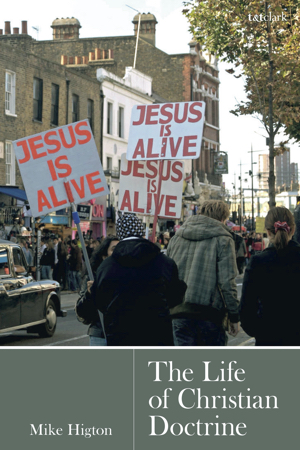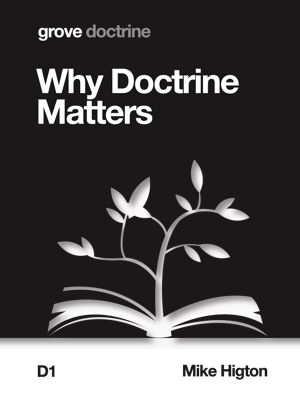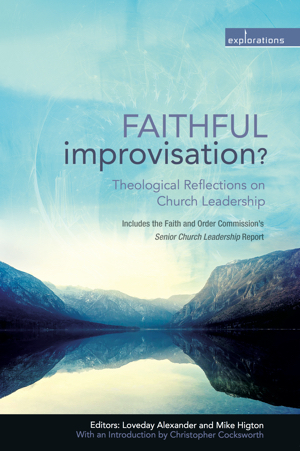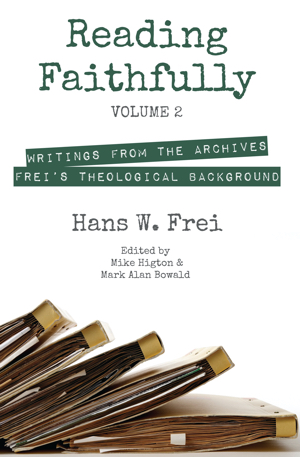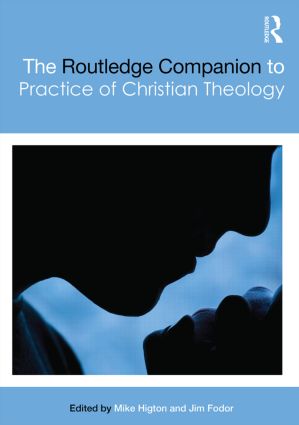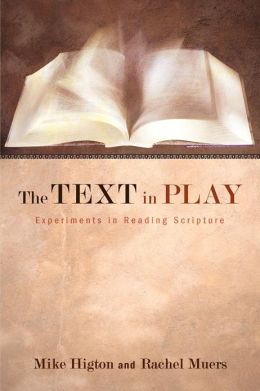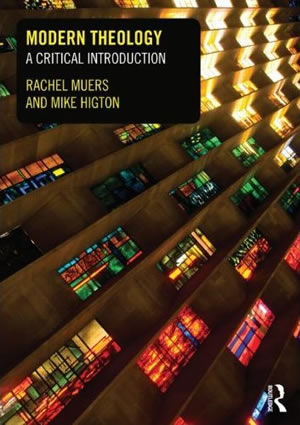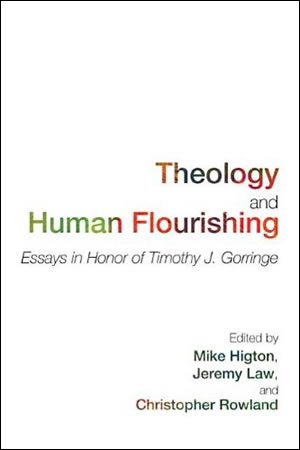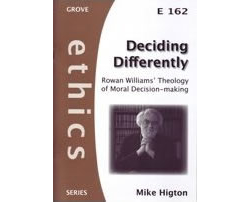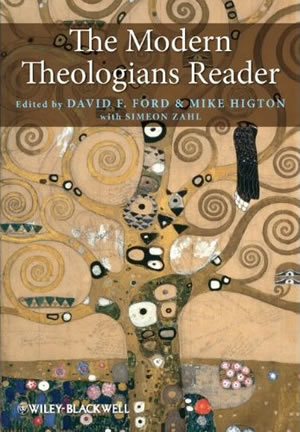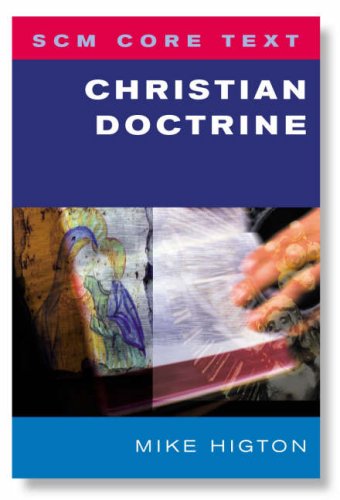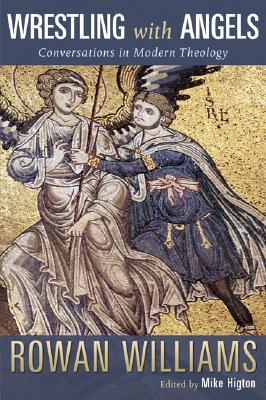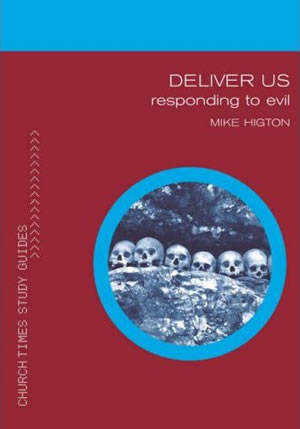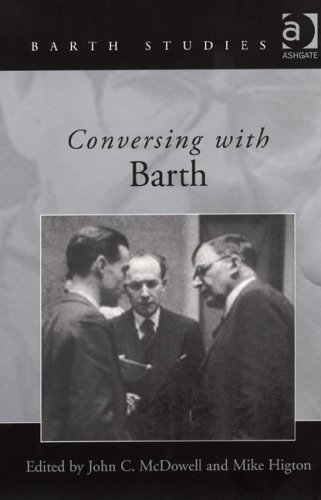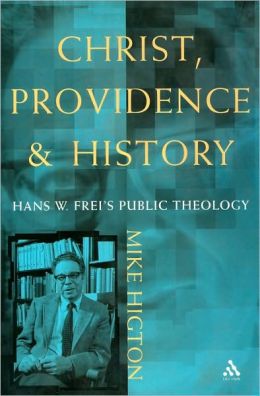Publications
Here are the books and booklets that I have edited and written. Click on the covers to be taken to the publisher’s page (where available). You can find a fuller list of my publications on my Durham University profile page.
The Life of Christian Doctrine
(London: Bloomsbury, 2020)
The lives of Christian churches are shaped by doctrinal theology. That is, they are shaped by practices in which ideas about God and God’s ways with the world are developed, discussed and deployed. This book explores those practices, and asks why they matter for communities seeking to follow Jesus.
Taking the example of the Church of England, this book highlights the embodied, affective and located reality of all doctrinal practices – and the biases and exclusions that mar them. It argues that doctrinal theology can in principle help the church know God better, even though doctrinal theologians do not know God better than their fellow believers. It claims that it can help the church to hear in Scripture challenges to its life, including to its doctrinal theology. It suggests that doctrinal disagreement is inevitable, but that a better quality of doctrinal disagreement is possible. And, finally, it argues that, by encouraging attention to voices that have previously been ignored, doctrinal theology can foster the ongoing discovery of God’s surprising work.
Why Doctrine Matters
(Cambridge: Grove, 2020)
Doctrinal theology – the exploration and discussion of Christian doctrine – is one ministry amongst others that can help to build up the Body of Christ.
It offers a service to members of the Body by clarifying what it means for them to be faithful followers of Jesus. It draws attention to some of the deep requirements for faithfulness discovered by earlier generations as they read their bibles and learnt how to be disciples.
As they bring those requirements into conversation with the present life of the church, doctrinal theologians can help believers today to go on discovering what their beliefs mean, in an unending journey of discovery.
Loveday Alexander and Mike Higton (eds)
Faithful Improvisation: Theological Reflections on Church Leadership
(London: Church House, 2016)
Faithful and effective church leadership requires preparation in prayer, theological reflection and a wide range of pastoral, prophetic and practical skills in order to ensure that what the Church discerns as necessary the Church does.
Faithful Improvisation? is both a contribution to a current and sometimes vigorous debate on how the Church trains its leaders and also a practical and theological resource for discerning what the Spirit is saying and then acting upon it in local church contexts.
Part One includes the full text of the Senior Church Leadership report from the Faith and Order Commission.
Part Two offers reflections by Cally Hammond, Thomas Seville, Charlotte Methuen, Jeremy Morris and David Hilborn, on practices, models and theologies of leadership in different periods of church history which informed the FAOC report.
Part Three opens up a broader discussion about present and future leadership within the Church of England. Mike Higton sketches out a dialogue between Senior Church Leadership and Lord Green’s report, Talent Management for Future Leaders; Tim Harle offers a personal reflection from the perspective of the community of leadership practitioners; and Rachel Treweek concludes with an exploration of the essentially relational character of leadership.
Mike Higton and Mark Alan Bowald (eds)
Hans Frei, Reading Faithfully 2: Writings from the Archives: Frei’s Theological Background
(Eugene, OR: Wipf and Stock, 2016)
The influence of Hans Frei (1922-1988) is wide and deep in contemporary theology, even though he published little in his own lifetime.
These two volumes collect a wide range of his letters, lectures, book reviews, and other items, many of them not previously available in print. Together, they display the range and richness of Frei’s thinking, and provide new insights into the nature and implications of his work.
They are an invaluable resource for all those interested in Frei’s work, and for any interested in his central themes: the development of modern biblical hermeneutics, the interpretation of biblical narrative, and the figural interpretation of all reality in relation to the narrated identity of Jesus Christ.
Volume 2 contains pieces on Lessing, Kant, H. Richard Niebuhr, and Karl Barth.
Mike Higton and Mark Alan Bowald (eds)
Hans Frei, Reading Faithfully 1: Writings from the Archives: Theology and Hermeneutics
(Eugene, OR: Wipf and Stock, 2015)
Volume 1 (Theology and Hermeneutics) contains:
Part 1: Letters – including letters to Leander Keck, William Placher, Van Harvey, Julian Hartt and Gary Comstock
Part 2: Hermeneutics – including pieces on ‘Scripture as realistic narrative’, ‘Historical reference and the gospels’ and ‘The specificity of reference’
Part 3: Theology – including ‘Saint, Sinner and Pilgrim: Three Paths in Quest of Christ’s Presence’, ‘History, Salvation-History and Typology’, ‘Of the Going Down of Christ Into Hell’, ‘Of the Holy Spirit’ and ‘On Priesthood, the Past, and Peace’.
Mike Higton and Jim Fodor (eds),
Routledge Companion to the Practice of Christian Theology
(London: Routledge, 2015)
This Companion introduces readers to the practice of Christian theology, covering what theologians do, why they do it, and what steps readers can take in order to become theological practitioners themselves.
The volume aims to capture the variety of practices involved in doing theology, highlighting the virtues that guide them and the responsibilities that shape them.
It also shows that the description of these practices, virtues and responsibilities is itself theological: what Christian theologians do is shaped by the wider practices and beliefs of Christianity. Written by a team of leading theologians, the Companion provides a unique resource for students and scholars of theology alike.
Mike Higton and Rachel Muers,
The Text in Play: Experiments in Reading Scripture
(Eugene, OR: Wipf and Stock, 2012)
In The Text in Play, Mike Higton and Rachel Muers conduct a series of experiments in the reading of Scripture.
They experiment in the first place with a form of Christian theological exegesis of the Bible that they call ‘serious play’ — a form of reading beyond the literal sense that is nevertheless serious about the ethical, historical, and textual responsibilities of the reader.
They experiment in the second place with the practice called Scriptural Reasoning — in which Jews, Christians, and Muslims read and argue over their respective Scriptures together — and argue that the practice makes deep sense for ‘seriously playful’ Christian readers. This constitutes the most detailed and developed account of Scriptural Reasoning yet published.
A Theology of Higher Education (Oxford: OUP, 2012)
In this book, Mike Higton provides a constructive critique of Higher Education policy and practice in the UK, the US and beyond, from the standpoint of Christian theology. He focuses on the role universities can and should play in forming students and staff in intellectual virtue, in sustaining vibrant communities of inquiry, and in serving the public good.
He argues both that modern secular universities can be a proper context for Christians to pursue their calling as disciples to learn and to teach, and that Christians can contribute to the flourishing of such universities as institutions devoted to learning for the common good. In the process he sets out a vision of the good university as secular and religiously plural, as socially inclusive, and as deeply and productively entangled with the surrounding society.
Along the way, he engages with a range of historical examples (the medieval University of Paris, the University of Berlin in the nineteenth century, and John Henry Newman’s work in Oxford and Dublin) and with a range of contemporary writers on Higher Education from George Marsden to Stanley Hauerwas and from David Ford to Rowan Williams.
Rachel Muers and Mike Higton,
Modern Theology: A Critical Introduction
(London: Routledge, 2012)
This book offers a fresh and up-to-date introduction to modern Christian theology.
The ‘long nineteenth century’ saw enormous transformations of theology, and of thought about religion, that shaped the way both Christianity and ‘religion’ are understood today.
Muers and Higton provide a lucid guide to the development of theology since 1789, giving students a critical understanding of their own ‘modern’ assumptions, of the origins of the debates and the fields of study in which they are involved, and of major modern thinkers.
Mike Higton, Christopher Rowland and Jeremy Law (eds),
Theology and Human Flourishing: Essays in Honor of Timothy J. Gorringe
(Eugene, OR: Wipf and Stock, 2011)
This collection of essays is a celebration of the work of Timothy Gorringe. Like his theology, it is animated by a delighted and critical engagement with the diverse facets of human social life, and by a passionate concern to wrestle with the Bible and the Christian tradition in pursuit of human flourishing.
The built environment, politics, education, art: these essays by leading Christian theologians ask what it means for Christian theology to concern itself with, to immerse itself in, and to risk critical commentary on, each of these and more.
The collection follows the same rhythm that animates Gorringe’s work: insistent attention to the Christian tradition in the light of the particular contexts where human flourishing is imagined, fought for, embodied and betrayed; and a critical, constructive and celebratory examination of those contexts in the light of the Christian tradition. The contributions are very diverse, touching on everything from city life to human curiosity, poverty to genocide – but they are united by a passion to make theological sense of human flourishing.
Deciding Differently: Rowan Williams’ Theology of Moral Decision-Making
Grove Ethics 162 (Cambridge: Grove, 2011)
Christian moral decision-making is often depicted as the equivalent of choosing the right kind of coffee from the supermarket shelf—an autonomous individual making rational choices. But, says Rowan Williams, decisions are in fact made in community with other believers and are part of the process of growing in holiness. Handling differences in moral positions is not, therefore, about simply agreeing with one another, but about recognising whether such decisions are being made as part of a recognizable obedience to God as revealed in Scripture.
David Ford,Mike Higton and Simeon Zahl (eds),
The Modern Theologians Reader
(Oxford: Blackwell, 2011)
The Modern Theologians Reader is an outstanding selection of the key writings in modern theology, with each extract introduced and annotated to support student learning.
It provides a unique stand-alone text which can also be used alongside the highly successful textbook, The Modern Theologians.
It features introductory notes and annotations with each extract to help students understand the relevance and importance of the reading, and includes selections from major 20th-century theologians and theological movements, and texts on Christian theology’s relation to science, globalization, and other faiths such as Buddhism and Judaism.
Christian Doctrine
SCM Core Text (London: SCM, 2008)
The SCM Core Text: Christian Doctrine offers an up-to-date, accessible introduction to one of the core subjects of theology. Written for second and third-year university students, it shows that Christian Doctrine is not a series of impossible claims to be clung to with blind faith. Mike Higton argues that it is, rather, a set of claims that emerge in the midst of Christian life, as Christian communities try to make enough sense of their lives and of their world to allow them to carry on.
Christian communities have made sense of their own life, and the life of the wider world in which they are set, as life created by God to share in God’s own life. They have seen themselves and their world as laid hold of by God’s life in Jesus of Nazareth, and as having the Spirit of God’s own life actively at work within them. This book explores these and other central Christian doctrines, and in each case, shows how the doctrine makes sense, and how it is woven into Christian life.
It will help readers to see what sense it might make to say the things that Christian doctrine says, and how that doctrine might affect the way that one looks at everything: the natural world, gossip, culture, speaking in tongues, politics, dieting, human freedom, love, High Noon, justice, computers, racism, the novels of Jane Austen, parenthood, death, and fashion.
Rowan Williams,
Wrestling with Angels: Conversations in Modern Theology,
edited by Mike Higton (London: SCM, 2007)
Wrestling with Angels is a collection of writings by Rowan Williams spanning the years from 1980 to 2000, and focusing on his insightful engagement with a wide range of modern theologians and philosophers – from Vladimir Lossky, whose work was a key impetus early in Williams’ career, through a range of classic figures like Hegel, Wittgenstein, Weil and Girard, or Barth, Bonhoeffer, Rahner and von Balthasar, and on to more recent figures such as Don Cupitt, Maurice Wiles, Gillian Rose and Marilyn McCord Adams.
Many of the papers published here are now out of print or are otherwise difficult to obtain.
Deliver Us: Exploring the Problem of Evil,
Church Times Study Guides (Norwich: Canterbury Press, 2007)
This booklet focuses on what is probably the most puzzling paradox of all: if God is good, how is the existence of evil explained?
Its effects are everywhere to be seen in the world, from individual behaviours to exploitation, tyranny and terror on an international scale.
How should Christians understand the problem of evil and more importantly, how should they respond to it?
Drawing on the Bible and theological tradition, here is an essential guide that touches on the big questions of good vs. evil, death and judgement, heaven and hell.

Vulnerable Learning: Thinking Theologically about Higher Education
Grove Ethics 140 (Cambridge: Grove, 2006)
True learning is not simply the acquisition of knowledge or skills.
It involves an openness to personal change analogous to the process of being a disciple.
This provocative, stimulating and practical study explores the radical implications this has for every aspect of Higher Education – the way courses are written, marks are given, research is planned and finances are accounted for.
.
Difficult Gospel: The Theology of Rowan Williams
(London: SCM, 2004)
Rowan Wiliams, is widely recognised as a creative and powerful theologian, but his theological writings are frequently complex and difficult. This book provides a clear and simple guide to the main themes of his theology, and shows how they are related to his reading of the Bible, his careful and wide-ranging engagement with the Christian tradition, and his grappling with contemporary culture.
It shows how the Archbishop’s ideas about peace or about popular culture, about sexuality or about evangelism, relate to his understanding of the life of God, and of the challenging good news of Jesus christ. The book is designed especially for those who have no academic expertise or formal training in theology, but are interested in finding out more about what Rowan Williams stands for.
John C. McDowell and Mike Higton (eds),
Conversing with Barth,
Barth Studies (Aldershot: Ashgate, 2004)
Karl Barth addressed all the major themes of dogmatic theology, and in so doing made his own distinctive contribution to each of the ongoing conversations that constitute that theology. This book presents important new ‘conversations with Barth’ by leading contemporary theologians and Barth scholars. Each contributor offers their own distinctive emphasis to bring to light the ways in which the depths of Barth’s work may illuminate or be illuminated by the work of other prominent thinkers who preceded or followed him. The conversations they host between Barth and other philosophers and theologians raise critical questions in the reading and appreciation of Barth’s thought, and explore a wide range of themes in dogmatic theology. This book not only adds to the comprehension of the riches of Barth’s theology but also presents an important contribution to the ongoing conversations and debates alive in theology today.
Contributors: Nicholas Lash, John Webster, Timothy Gorringe, Graham Ward, George Hunsinger, Ben Quash, Mike Higton, John McDowell, Eugene Rogers, Katherine Sonderegger, David Clough, David Ford.
Christ, Providence and History: Hans W. Frei’s Public Theology
(London: Continuum, 2004)
This book is the first full study of the whole of Hans Frei’s work.
Higton draws on a wide range of unpublished material in the Frei archives to present a comprehensive, fresh, and original interpretation of Frei’s theology.
He places Frei’s well-known work on biblical hemeneutics firmly in the context of his theological wrestling with Barth and of the dominant traditions of Western Protestant theology.
.
.
David Ford and Mike Higton (eds),
Jesus,
Oxford Readers (Oxford: OUP, 2002)
This Oxford Reader encompasses the two-thousand year history of responses to Jesus of Nazareth. The selected readings are arranged into seven chronological chapters, which are in turn organized thematically.
More than 340 extracts are included, with familiar materials from key texts in the history of doctrine presented alongside a diverse sample of devotional, popular, liturgical, historical-critical, philosophical, and mystical texts. There are extracts from poems, songs, and plays, as well as polemics, commentaries, manifestos, treatises, letters, novels, liturgies, and creeds.
The full range of responses to Jesus are represented in texts from Eastern and Western Christianity, both Catholic and Protestant, and additionally Jewish, Islamic, Hindu, Buddhist, and Zoroastrian texts. Spanning heterodoxy and radical thinking, this Reader presents an absorbing and many-sided picture of the wealth of responses to Jesus.

